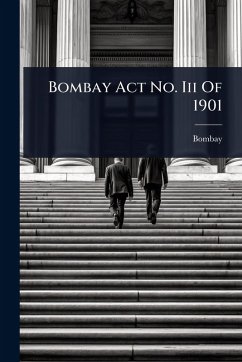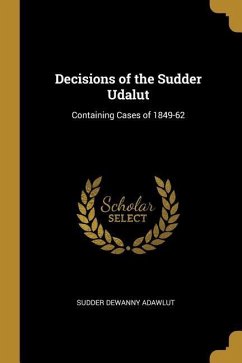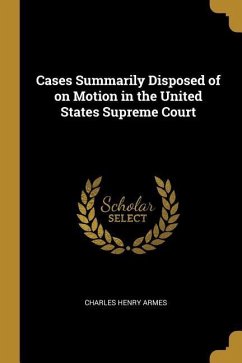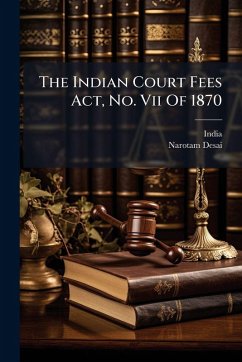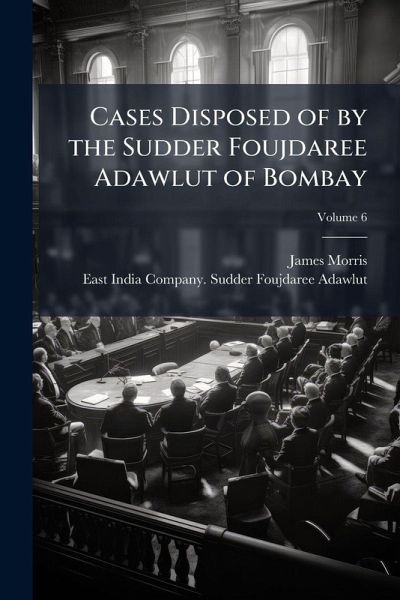
Cases Disposed of by the Sudder Foujdaree Adawlut of Bombay
Versandkostenfrei!
Versandfertig in über 4 Wochen
37,99 €
inkl. MwSt.

PAYBACK Punkte
19 °P sammeln!
Cases Disposed of by the Sudder Foujdaree Adawlut of Bombay, Volume 6 presents a detailed record of legal proceedings from the mid-19th century in British India. Authored by James Morris and the East India Company's Sudder Foujdaree Adawlut, this volume offers invaluable insights into the judicial system and legal practices of the time. The book meticulously documents various court cases, providing a rich source of information for legal scholars, historians, and anyone interested in the administration of justice during the colonial period. This historical record sheds light on the types of cri...
Cases Disposed of by the Sudder Foujdaree Adawlut of Bombay, Volume 6 presents a detailed record of legal proceedings from the mid-19th century in British India. Authored by James Morris and the East India Company's Sudder Foujdaree Adawlut, this volume offers invaluable insights into the judicial system and legal practices of the time. The book meticulously documents various court cases, providing a rich source of information for legal scholars, historians, and anyone interested in the administration of justice during the colonial period. This historical record sheds light on the types of crimes adjudicated, the legal arguments presented, and the outcomes of the trials. It serves as a crucial primary source for understanding the complexities of law and order in Bombay and the broader context of British legal administration in India. The work preserves an important chapter in the legal history of the region. This work has been selected by scholars as being culturally important, and is part of the knowledge base of civilization as we know it. This work was reproduced from the original artifact, and remains as true to the original work as possible. Therefore, you will see the original copyright references, library stamps (as most of these works have been housed in our most important libraries around the world), and other notations in the work. This work is in the public domain in the United States of America, and possibly other nations. Within the United States, you may freely copy and distribute this work, as no entity (individual or corporate) has a copyright on the body of the work. As a reproduction of a historical artifact, this work may contain missing or blurred pages, poor pictures, errant marks, etc. Scholars believe, and we concur, that this work is important enough to be preserved, reproduced, and made generally available to the public. We appreciate your support of the preservation process, and thank you for being an important part of keeping this knowledge alive and relevant.





